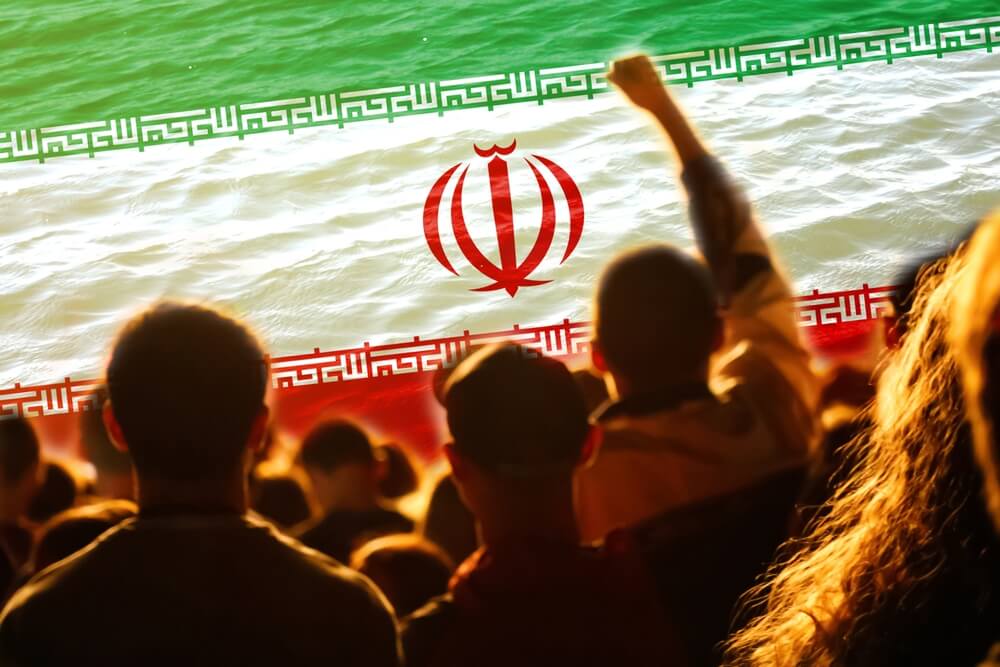The recent elections in Iran starkly underscore the systemic and deep-seated issues plaguing the Islamic Republic’s political system, highlighting the undeniable truth that elections in Iran are fundamentally neither free nor fair. The widespread calls for boycotts and palpable dissent among the Iranian people point to a profound rejection of the ruling theocracy.
This sentiment was vividly captured by a young university student’s analogy, likening voting in the election to prisoners voting for their prison guards—a powerful illustration of the futility and coercion inherent in the theatrics of the electoral process under this regime.
The elections also carried significant implications for Iran’s Assembly of Experts, an 88-member clerical body with the power to select and appoint the supreme leader. With the current supreme leader, Ali Khamenei, facing significant health issues and succession challenges, his entire mafia-style regime continues to struggle with factional fights for the next “godfather of terror” in Tehran.
This struggle is occurring while the regime faces an existential threat from a growing anti-regime resistance movement across the country. Amid popular slogans of “down with dictators, down with Khamenei,” a major candidate “purification” effort, engineered by Khamenei himself, set the stage so the most aggressive faction of his inner circle could retain power in the Assembly of Experts. This self-fulfilling prophecy demonstrates the inherent weakness of the regime’s power structure and Khamenei’s desperation to project an image of legitimacy, despite the undeniable evidence of widespread public rejection.
Low turnout undermines mullahs
For this election, the regime had escalated its coercive tactics, including eliminating the requirement for photo ID to facilitate multiple voting, not stamping ID cards, accepting multiple forms of identification, and outright bribing and buying votes. Active-duty soldiers were coerced into voting with promises of leave, and workers and prisoners faced pressure to participate in the electoral charade. Khamenei, in a last-ditch effort to rally participation, framed the elections as a matter of “national security”—a term that, in the regime’s lexicon, equates to the regime’s survival.
Despite these efforts, reports from across the country depicted empty polling stations and utter disengagement. International media, including The Associated Press and Reuters, reported on the low turnout and the heavy presence of security forces, underscoring the elections as a test of the regime’s legitimacy amid escalating economic and social grievances.
The people of Iran delivered a resounding blow to the entire regime by boycotting the sham elections and demonstrating their resolve to dismantle the decrepit dictatorship of the supreme leader, which is also known as Velayat-e Faqih.
This widespread rejection of the electoral process signaled a clear demand for change. Maryam Rajavi, president-elect of the National Council of Resistance of Iran (NCRI), applauded the Iranian people on their firm boycott, interpreting it as a referendum against the regime and a step toward accelerating its downfall. She emphasized that the people’s decisive “No” heralded the impending uprisings and the ultimate demise of the theocratic dictatorship.
Despite the regime’s attempts to engineer the election outcome amid warmongering campaigns leveraging the Gaza conflict for political gain, the widespread boycott speaks volumes.
The Iranian people want democratic regime change
This scenario reveals a critical juncture for Iran and its people, given the ongoing nationwide protests and uprising. The system of Velayat-e Faqih is rejected in the streets and through the ballot box, a reality that, when incorporated into the broader narrative of the March 1 elections, suggests a pivotal moment for the Iranian resistance movement. One of the most powerful and recurring messages that came from Iran on March 1 was, with this regime, “it is not time to vote, it is time to revolt.”
The international community, particularly Washington, must recognize the legitimacy crisis facing the regime in Tehran and the Iranian people’s clamor for a secular, democratic and non-nuclear republic. The elections not only highlighted the regime’s vulnerabilities but also the people’s unwavering aspiration for freedom, democracy and human rights.
The pressing question is whether the global community, especially Washington, will seize this historic opportunity to support the Iranian people’s aspirations for change. To truly stand with the Iranian people, the U.S. must take the lead in breaking the current policy deadlock on Iran.
Despite bipartisan congressional calls, successive U.S. administrations have overlooked the Iranian populace’s desire for democratic regime change. Washington’s policy towards Tehran has long been trapped oscillating between military confrontation and diplomatic negotiations. This narrow view, equating regime change exclusively to U.S. military action akin to what occurred in Iraq or Afghanistan, has inadvertently led U.S. policy into a cycle of fruitless negotiations with a regime that seeks political legitimacy from these interactions.
This strategy has neglected and even impaired the exploration of alternative approaches that could more adeptly navigate the intricate challenges presented by Iran’s government, on both domestic and international fronts. The alternative approach must place the Iranian people’s call for change at the center of U.S. policy on Iran and hold the Iranian officials accountable for their crimes against humanity. It must also recognize that Iranians will lead the path to regime change based on their right to self-defense and aspirate for a non-nuclear secular republic.







